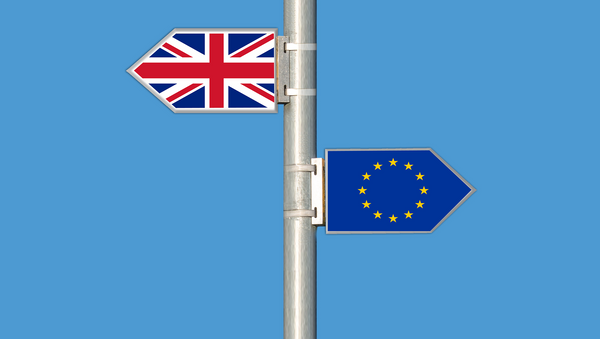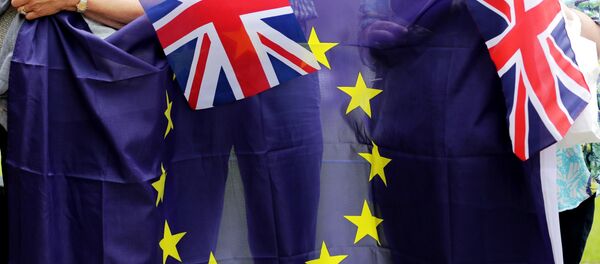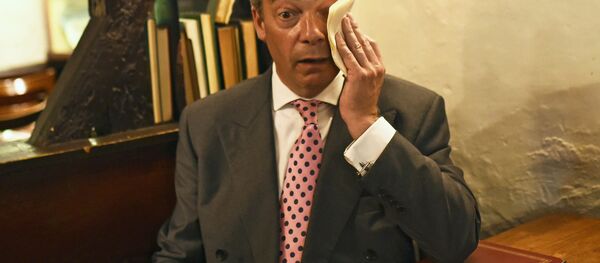Brexit-related problems will be discussed at a special press conference due to be attended by European Council head Donald Tusk, European Commission President Jean-Claude Juncker and Dutch Prime Minister Mark Rutte, whose country holds the EU's rotating presidency.
Ahead of the summit, the leaders of the EU member states admitted that there is a "very significant crisis" in Britain, and that they will not prod Prime Minister David Cameron to launch the exit procedure immediately, according to the news website EUobserver.
"The interest of everyone is to have certainty and predictability [with respect to] the next steps. But the crisis in the UK, which is not only about leadership in the governing party, goes much deeper," a senior EU official was quoted by EUobserver as saying.
According to EUobserver, all this means that during the Brussels summit, "EU leaders will say they stand ready to begin the process swiftly and that they expect notification as soon as possible. But they will not ask for it."
Last Friday, the German newspaper Frankfurter Allgemeine Zeitung reported that the Foreign Ministers of France and Germany had prepared a proposal on the transformation of the EU into a "more flexible alliance," with its members having the right to determine the extent of its integration into the EU on their own.
Security preparation underway in Brussels for the exraordinary #Brexit EU summit. pic.twitter.com/XW3YkqSC5T
— Sándor Zsíros (@EuroSandor) 28 июня 2016 г.
On Saturday, the plan was approved at the EU's emergency ministerial meeting, where French Foreign Minister Jean-Marc Ayrault even called for the resignation of Cameron, so as not to delay Britain's withdrawal from the EU.
The Polish media in turn were quick to slam the German-French project as an attempt to create a "super state" led by Berlin and Paris; the media outlets claimed that the document even includes proposals for EU members to give up their own armies.
The EU's at the sharp end of things going into this summit. Needs to address #Brexit but not be consumed by it. pic.twitter.com/AlvuRIKyA3
— Ros Atkins (@BBCRosAtkins) 27 июня 2016 г.
In fact, the document contains neither a proposal suggesting a superstate nor suggestions of "a more flexible EU," according to RBK.
Warning about the challenges faced by the EU, the Foreign Ministers of Germany and France offer to create a unified security policy and coordinate military budgets.
Additionally, they call for creating a comprehensive platform for cooperation between intelligence services of the EU member states, shifting the resolution of migration issues to a EU level and overcoming the Eurozone crisis via further financial integration.
#UK not invited to Day 2 of this week's #EU summit when the other 27 countries will discuss the EU's future post #Brexit
— katya adler (@BBCkatyaadler) 27 июня 2016 г.
At the same time, however, the ministers recognized that in different EU countries there is a "different degrees of desire for European integration," a factor that they said should always be considered so as to respect the views of the EU member states.
As far as Russia is concerned, the unexpected result of last week's national referendum in Britain led to a situation where the prolongation of the anti-Russian sanctions is very unlikely to top the EU summit's agenda.
In mid-June, NATO chief Jens Stoltenberg lashed out at sudden drills that were held by the Russian army; at the same time, he stressed the necessity of holding a Russia-NATO Council in the near future.
Last Thursday, a nationwide referendum was held in Britain in which 51.9 percent of the voters said that they were in favor of leaving the EU. The United Kingdom still needs to formally notify the EU of its intention to leave the bloc. After that, it has two years to negotiate the terms of its divorce.





